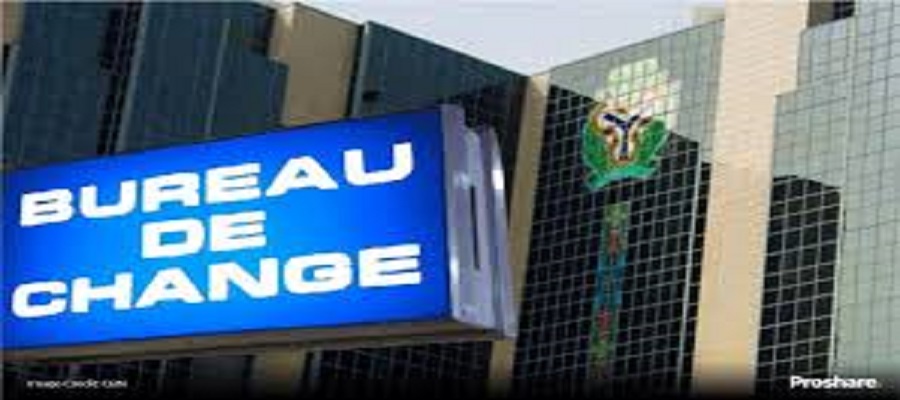E-Financial
CBN to Monitor Compliance with Removal of ATM Charges

A week after the decision of the Bankers’ Committee to stop inter-bank automated teller machine (ATM) charges, investigations have revealed that some of the banks still charge customers for inter-bank ATM use.
Central Bank of Nigeria (CBN) has however indicated her resolve to monitor compliance while Nigeria Deposit Insurance Corporation (NDIC) said the removal of charges would deepen the market.
But bank customers who spoke to our correspondent find it hard to believe that banks find it difficult to comply with the new directive, after it was unanimously agreed by their directors.
Steven Onifade, a bank customer said he was happy when he heard the cheering news of the scrapped inter-bank ATM charges, only to use his card at another bank’s ATM and N10 was deducted from his account.
Another respondent who craved anonymity said, the clause ‘this transaction attracts N100, do you wish to continue, ’ought to be removed since all the banks are now at par.
The respondent said the greed by the issuing banks to get a N25 share from the N100, was responsible for their non compliance.
Reaching out to the banks for their reactions to the allegations, our reporter was asked to send e-mails, which are yet to be responded to at the time of filling this report.
But Ugo Okoroafor, director, Corporate Affairs, CBN said the apex bank would continue to remind the banks to honour their decision and encourage them to abide by it in the interest of the customers.
He said that the decision by the bankers’ committee was a welcome development as the directive was not directly from the CBN but “they thought it wise to scrap the charges.”
Going by the complaints of the numerous bank customers on non-compliance of some banks with the directive, the CBN spokesman said the apex bank would deploy examiners to monitor compliance with the directive.
Elsewhere, Umaru Ibrahim, managing director, NDIC said the decision to stop the charge would increase the patronage of ATMs and deepen the financial inclusion strategy.
He listed the other projects meant to promote financial inclusion to include the cash-less policy designed to bring low-cost, secure and convenient financial services to urban, semi-urban and rural areas in the country.
Ibrahim called for the promotion of all-women microfinance banks, adding that evidence from other countries indicate that such institutions have the potential to promote easy access to credit among rural women, especially at the group levels.
He said the platform could also be used to mobilise more funds from the group.
Ibrahim said out of the total number of provisional and final microfinance bank licences issued by the CBN, the north, including Federal Capital Territory had only 24.75 per cent, and therefore called on the state governments in the region to establish more grassroots banks.
According to him, financial inclusion, alternatively characterised as ‘access to finance’ has been defined as ‘universal access at reasonable cost, to a wide range of financial services to everyone needing them, provided by a diversity of sound and sustainable institutions.’
He said the CBN and NDIC have and uphill task in improving financial inclusion given the relatively low level of penetration of financial services in the country.
The NDIC boss said the rising trend in bank customers’ complaints is a source of worry to the regulators.
He said such complaints arising mainly because of poor customer service, high bank tariffs, frauds and forgeries as well as bank distress could threaten confidence in the banking system.
Ibrahim said banks are aware of whom their customers are but many of them do not appreciate the need to determine their expectations and how to manage them.
“The inability to manage customers coupled with the serious corporate governance issues could explain the high frequency of complaints among bank customers in Nigeria. To determine the causes of customer complaints and design appropriate strategies for preventing and controlling it, the need to determine customer expectations and how to effectively manage them cannot be over emphasised,” he said.
E-Financial
CBN Waives 2025 Licence Renewal Fee for Bureaux de Change Operators

Central Bank of Nigeria (CBN) has waived the 2025 licence renewal fee for all bureaux de change (BDC) operators.

Jonah Onojah, director of the financial policy and regulation department, announced that the waiver took immediate effect.
“This is to inform all existing bureaux de change that further to the Regulatory and Supervisory Guidelines for Bureau De Change Operations in Nigeria, 2024, and the ongoing transition to the new BDC regulatory structure, the Central Bank of Nigeria (CBN) has approved the waiver of 2025 licence renewal fee, effective immediately,” the statement reads.
“Any bureau de change that has paid for 2025 licence renewal is hereby advised to apply to the Director, Financial Policy and Regulation Department, Central Bank of Nigeria for refund to its account from which the payment emanated.
“The CBN remains committed to fostering stability, transparency, and efficiency in the foreign exchange market while ensuring that operators align with the revised regulatory framework,” the statement said.
On May 22, 2024, CBN approved new guidelines for BDC operations to improve compliance and oversight.
In the guideline, CBN said all existing BDCs are to re-apply for a new licence according to any of the tiers or licence categories of their choice.
CBN said the guidelines are part of its efforts to re-position the BDC market to play its envisioned role in the foreign exchange market in Nigeria.
E-Financial
PalmPay is not a Loan App, says MD

PalmPay, a Mobile Money Operator and digital payment platform has reaffirmed its role as a mobile payment provider, correcting the insinuation that it is a loan App.

Chika Nwosu, Chief Executive Officer, PalmPay, speaking at a press conference in Lagos clarified that PalmPay’s core mission is to provide seamless payment solutions and financial services, not to issue loans.
This clarification became necessary against erroneous messages in some social media platforms that the PalmPay is a loan App, as well as individuals wearing PalmPay-branded clothing allegedly been involved in arresting loan defaulters, raising concerns about the company’s role in debt recovery practices.
He explained that all lending activities on its platform are conducted by third-party financial institutions leveraging its ecosystem, not PalmPay itself.
“PalmPay is not a loan App. We provide a platform for third-party financial institutions to offer their services, including loans, to our users. These institutions operate independently and comply with all regulatory requirements,” Nwosu explained.
More so, Chika Nwosu identified smartphone penetration, internet connectivity and innovative technologies as key factors that are crucial to increased access to mobile money services in Nigeria.
According to him, with smartphone penetration projected to reach 65% by 2026 as well as improved internet infrastructure, more Nigerians will be enabled to access mobile money services.
He disclosed that, with fintech companies such as PalmPay evolving through digital wallets and seamless payment gateways, accessibility to mobile money service was bound to expand soon.
He emphasized that with demand for affordability of financial services growing, more opportunities would be unlocked for PalmPay in the nearest future.
“From under 10,000 agents in 2015 to over 1.5 million agents in 2023, agent networks have become the backbone of mobile money operations in Nigeria. For this reason, we are more likely to see a sharp increase in the number of mobile money agents and merchants. Apart from that, MMOs will increasingly use artificial intelligence to improve customer experiences, such as machine learning, predictive analytics, and fraud detection,” he said.
Donald Ubeh, Head, Risk and Compliance, MLRO at PalmPay, while highlighting the impact of fintech companies such as PalmPay, explained that the coming of PalmPay has led to economic empowerment particularly for individual users and several Small and Medium Scale enterprises.
He noted that many Nigerians including bank customers have migrated their funds to PalmPay owing to convenience and accessibility it provides.
He added that mobile money operators were conceived with the aim of driving financial inclusion for the underserved and unbanked population.
According to EFInA, increasing adoption of fintech companies by Nigerians has led to increase in financial inclusion rate by 13% in 13 years.
E-Financial
Moniepoint MFB Says Rumours of N1.1Bn Theft by Hackers Malicious

Moneipoint has denied reports that Moniepoint MFB, its microfinance bank, was hacked and some N1.1 billion allegedly stolen.

Moniepoint, in a blog post said that the report, which began on social media was malicious and misleading and should be ignored.
According to the company, the alleged theft gained traction on social media, alleging that the company is facing operational challenges due to the hack.
“We categorically state that these claims are untrue, and we urge the public to disregard them in their entirety.
Moniepoint MFB has always maintained the highest standards for digital security and customer fund protection.
It stated that as a duly authorised and licensed financial institution, customer deposits with Moniepoint MFB are insured by Nigeria Deposit Insurance Corporation (NDIC), with the Central Bank of Nigeria (CBN) supervising and regulating its operations to ensure adherence to all applicable standards.

 E-Financial1 day ago
E-Financial1 day agoMoniepoint MFB Says Rumours of N1.1Bn Theft by Hackers Malicious

 General News1 day ago
General News1 day agoCourt Orders Arrest of Access Bank Acting MD, Others over Alleged Theft of Property

 Telecom1 day ago
Telecom1 day agoSERAP Drags Tinubu, Others to Court over ”Arbitrary” Telecom Tariff Hike

 E-Financial1 day ago
E-Financial1 day agoWorld Bank Urges CBN to Sustain Inflation Control Measures

 Telecom1 day ago
Telecom1 day agoFG, WIOCC Partner to Deliver Internet to 3m Homes with $10m Investment

 E-Financial1 day ago
E-Financial1 day agoZenith Bank Reinforces Commitment to Staff Wellbeing with Salary Hike and Promotions

 E-Financial1 day ago
E-Financial1 day agoSEC Warns against Transactions with Risevest, Stecs Cooperative Societies

 News1 day ago
News1 day agoARCON to Sanction Perpetrators of Misleading Adverts















